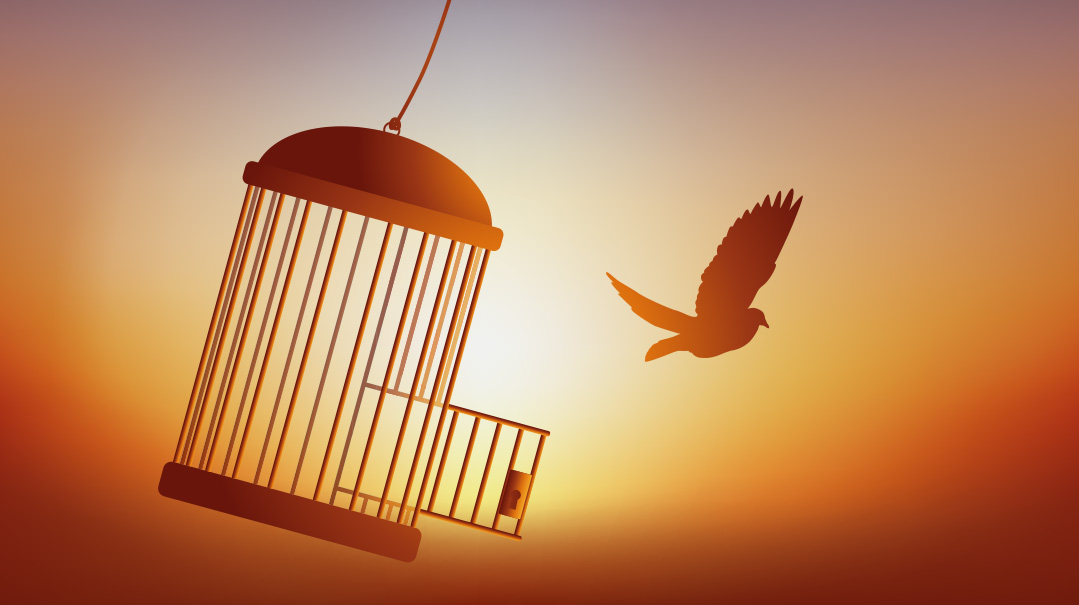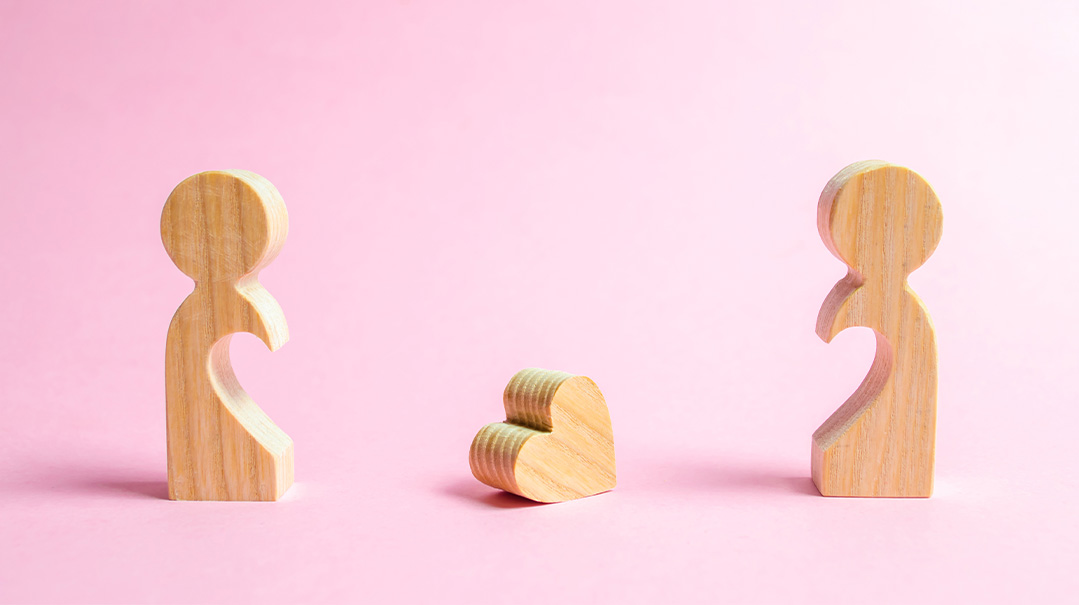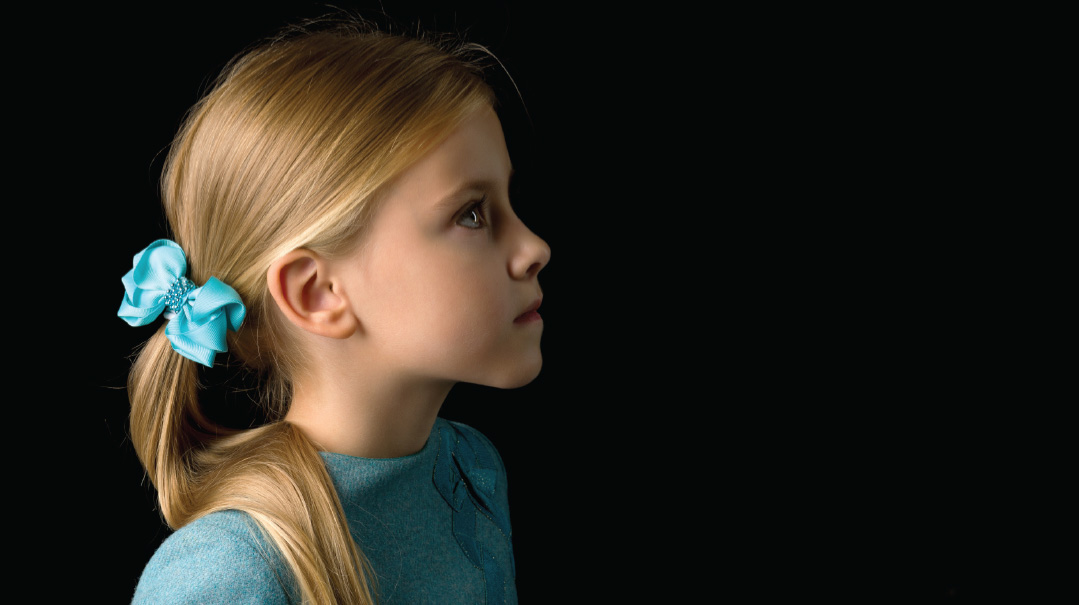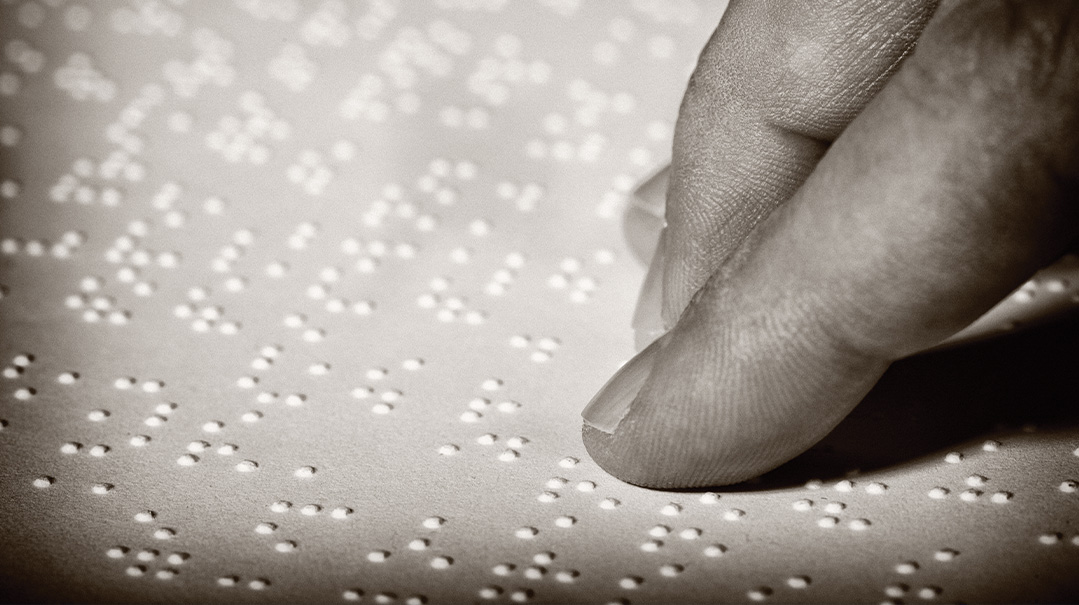Doing It All

I tried to keep doing, but my grades were slipping, and deep inside me, I knew I was beginning to snap

As told to Devorah Grant
When Mom got sick, I barely blinked. It was too much to process when everyone around me was falling apart, and someone needed to hold it together. So that was me. While my father and siblings were antsy and worried, I just kept going. When appointments and surgeries were booked and attended, I kept going. And on the day Mom had her biggest surgery, I went to school as usual and scored a 97 on my math test.
I started to sneer at the books and articles talking about ill parents, and the impacts of that on their children. When teachers asked, in concerned voices, how I was doing, I wasn’t sure how to answer. I’m no heartless being, but I really didn’t see the big deal. Of course it was hard to see Mom in pain, but most of the time she was fine, and the doctors didn’t seem too worried. I added her name in my tefillos and squirmed uncomfortably when people told me I was “amazing.” What’s so amazing, I would wonder, as I put Lali to bed and cleaned the kitchen for the fifth night in a row, this is just my life.
The first surgery was successful, baruch Hashem. The illness was gone, Mom was back on her feet, and Dad went back to work again. I put that period of time behind me as another hurdle overcome, and I thought I knew what it felt like to go through something like this. If anything, the whole saga made me surer of myself and my ability to handle challenge. I was resilient, I thought, and Hashem would help me through. Then Nina’s mom got sick.
Nina was never a close friend, but we had always gotten along well. We moved in different circles, but we had a few friends in common who naturally thought that now I would be able to help Nina. And so it happened that I found myself listening to Nina, almost daily, as she spoke about how crazy her life had become, and how “normal” was a thing of the past. I listened to Nina. I tried very hard to understand. But honestly, I really couldn’t. When I heard how Nina was crying into her pillow each night, I nodded, but I didn’t get it at all. When she told me she was struggling with her appetite, I brought her lunch while wondering what on earth her issue was. And when she said she needed help in her house, I went over to babysit, watching as my friend fell apart in a situation which was oh-so-familiar to me. I know, you’re hearing it in my tone. I’m embarrassed to say that I judged her.
Nina’s situation became a Thing in our class. While we supported Nina, our mothers and teachers organized a meal rotation, cleaning help, outings for the kids. That made me feel extra weird inside, because no one had done that for us. But, I reminded myself, that was because we had handled things pretty well when it had happened to us. We were obviously hardened soldiers, I reasoned, experienced in battle and able to cope. Then Nina’s mom recovered, and mine got ill again.
Going through the diagnosis and treatment for the second time was a weird experience. On the one hand, we knew how to deal with it even better this time, and I quickly went back into the routine of taking care of the younger kids and making sure the house continued to run. On the other hand, a new fear had darkened our doors this time — the knowledge that the sickness had connived its way back into our lives, and could again, at any point. Still, I told myself, all we could do is keep going. So that’s what I did. With Nina’s story on the back burner, my class rallied for me this time, offering the same help and support we had to her. But I said no, we didn’t need it, thank you. Once again my teachers reached out with offers to talk and be there, and once again I politely told them that things were under control and we were managing. And once more, I looked at Nina, and wondered why on earth she had fallen to pieces, when I was doing it all, alone.
Then the illness got worse again, and things began to change. The treatment this time was far more brutal. While last time Mom had been basically functional, the second, then third time around, the treatment would completely exhaust her, leaving her with barely any physical or emotional energy. The first time it really hit me was when Mom went grocery shopping and came home and collapsed from the strain. Suddenly things were looking different. The illness was penetrating my fort.
I kept doing it all. I socialized, did my homework, went to school, and then came back and cleaned, cooked, and washed until it was time for bed. My father tried to help and order takeout, but the kids hated pizza, and were constantly cranky, and he was too overwhelmed to even notice. Things were beginning to get to me, but I tried to ignore them. Yoni lost all his socks and I bought him new ones, spending my own money, and wasting precious time I needed for studying. Still, I was resilient. I could do it all.
As time wore on, the hard moments got bigger and came up more often. There was the time when Mom couldn’t eat anything at all and lost 25 lbs. in two weeks. I began to lose my appetite, too. Then, the doctors told us the treatment needed changing again, and suddenly she began to tremor constantly. I couldn’t sleep. Yoni and Lali were having nightmares, but so was I, constantly dreaming of the end, of being an orphan, of what it would all mean. I tried to keep doing, but my grades were slipping, and deep inside me, I knew I was beginning to snap.
Ironically, it was Nina who helped me most in the end. She dragged me out for ice cream one night and told me, as I chased strawberry sauce round my plate, that she was calling Chai Lifeline, because she knew we need more help. One part of me wanted to argue with her, but the other part came first, and before I knew it my head was down on the table and my hair was mixing with tears and ice cream and strawberry sauce, as Nina told me that I was normal to feel this way.
It didn’t feel normal at all, I told my mentor at Chai Lifeline. I’d always been such a coper; what had happened?
“Maybe you’re not a robot?” Shayna responded, and for the second time that week, I crumpled into a heap and cried. I was no robot, I realized, but I had for sure acted like one.
I learned a lot about myself during those horrible few months, as Mom faced a long and rough recovery. I learned that different people face crisis differently, and that my way is often to do more, to avoid the difficult emotions that crisis brings. Shayna and Nina taught me how I could do it differently. I resisted them at first — I was so scared to think I wasn’t resilient or couldn’t cope and couldn’t manage it all. But they began to show me otherwise. “It’s okay to take help,” they kept assuring me, but it took time to sink in. Yet I also began to see how much strength it takes to reach out and share, and how, perhaps, letting others help is one of the most resilient things you can do.
We really did need the help, I realized, as soon as the help arrived. Although I had been doing it all until now, the relief I felt when someone else started to organize meals and cleaning help made me cry. It had been too much all along, but I had been too busy trying to prove myself to notice. The first time I went to bed without cooking or cleaning brought a mixture of gratitude and frustration that I had let this go on for so long. I couldn’t do it all. But, Nina and Shayna told me, no one could.
Mom is recovering, baruch Hashem, and so, dare I say it, am I. Slowly, slowly, I’ve begun to admit and absorb how crazy this time has been, and how challenging illness can be for the family members of those suffering, even if they won’t acknowledge it. I know it’s so cliché; I’ve become one of those magazine articles bemoaning this challenge, too. But please, from someone who’s been there: If you’re going through a challenge like this, reach out and find the support you need. However incredible you are, no one can do it all, and you don’t need to manage this alone.
(Originally featured in Teen Pages, Issue 956)
Oops! We could not locate your form.







